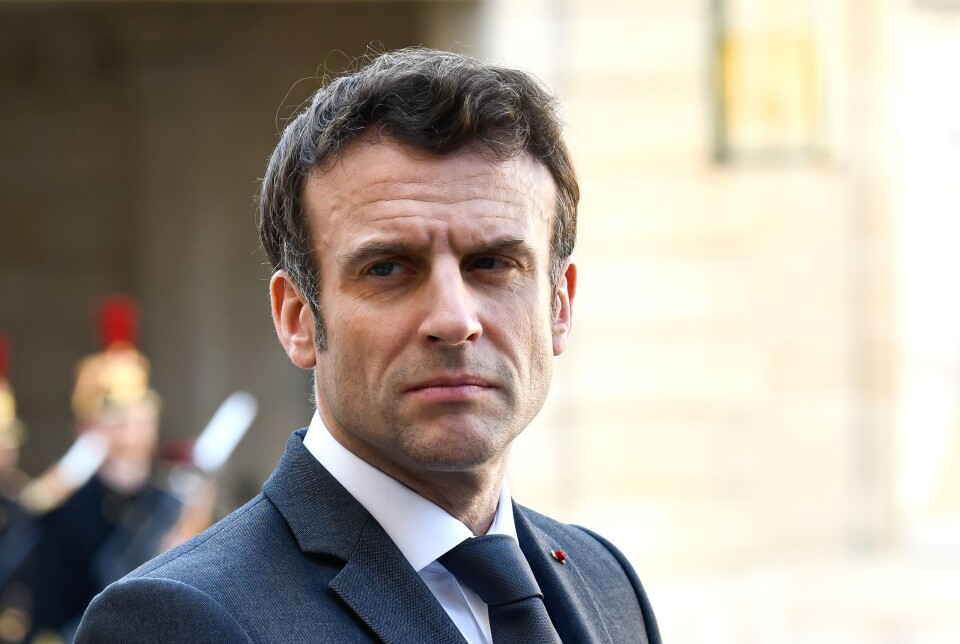Macron letter to French people sets out terms to name new prime minister
President has given no deadline but said candidate must respect republican values
The president said that ‘republican forces’ won the election on Sunday, after the far-right were defeated
Victor Velter/Shutterstock
French President Emmanuel Macron has named his requirements for appointing the country’s next prime minister, in a letter published yesterday afternoon.
In the letter, Mr Macron hints that it may still be some time before the next prime minister is chosen, saying that there is no “deadline” for when the appointment will be made.
In addition, it is not sure from which political faction the candidate will be as the president is “giving [parties] a little time to build,” potential coalitions, to see who can muster the most MPs backing a single government.
The president is required to appoint a new prime minister following the results of last Sunday’s (July 7) legislative elections, which saw the left-wing alliance Nouveau Front Populaire (NFP) win the most seats, but fall short of a majority in the Assemblée nationale.
In their view this puts them first in line to propose the new prime minister and have the chance to form the next government.
However a number of potential alternative minority governments which could see centrist, right wing, and even centre-left parties aligning, may be viable alternatives even if these would also fail to gain an absolute majority.
Read more: Left-wing candidates to be the next French prime minister
“What the French people have chosen at the ballot box - the Republican front - the political forces must put into practice through their actions,” said the president.
This refers to the blocking of the far-right Rassemblement National through tactical voting, employed by the left-wing and centrist parties in the second round of voting on Sunday (July 7).
Mr Macron called on “all political forces that identify with republican institutions, the rule of law, parliamentarianism, a European orientation and the defence of French independence,” to hold discussions to find common ground and work together in a coalition.
It currently appears unlikely that any group of parties will pass the threshold to rule with an absolute majority of MPs – at least 289 of the 577 in the chamber – without serious compromises being made.
The president’s comments may have also been aimed at the NFP, partly made up of the far-left La France Insoumise, a party which many of Macron’s allies have claimed is too extremist to be in power, and is ‘anti-republican’.
There have been calls for the less radical parties of the NFP (the Socialists and Greens) to leave the alliance and work in a wider ‘centrist’ coalition, which would include Macron’s camp and, potentially, MPs from the right-wing Les Républicains party.
Read more: ‘France is ungovernable’: what experts say about election results
Mr Macron added that no political alliance “won” the election as all failed to get a majority of seats, but that “republican forces” won an absolute majority, against extremist groups.
This, combined with the high voter turnout, were “signs of the vitality of the French Republic,” he added.
Left react with indignation
Responses to the letter were critical with the NFP in particular seemingly irate over the president’s refusal to name the group as the winners of the election, and not to guarantee that the prime minister will come from its ranks.
Leader of the Communist Party Fabien Roussel said the president was “in a form of denial…and [needs to stop] avoiding the result of the election.”
“Emmanuel Macron alone decided on this dissolution…Let him now draw the consequences of his result,” said leader of the Greens, Marine Tondelier, who reportedly has interest in becoming the next prime minister.
Far-left talisman Jean-Luc Mélenchon said on X (formerly Twitter) that president Macron was “refusing to recognise the result of the ballot box which placed the New Popular Front at the top of the vote and seats in the Assembly."
"This is the return of the royal right of veto over universal suffrage,” he added.
Those from the far-right also mocked the president’s letter, particularly in light of the tactical voting that led with the NFP winning the most seats.
Marine Le Pen of the Rassembelment National questioned Mr Macron's integrity now that he “is proposing to block La France Insoumise… [when] he helped (its candidates) get elected three days ago and thanks to whom centrist MPs were elected.”
President of the RN party, Jordan Bardella, criticised Mr Macron for “organising the paralysis of the country by positioning the far left at the gates of power, after unworthy arrangements.”
Members of the right-win Les Républicains group have not commented on the letter.




























